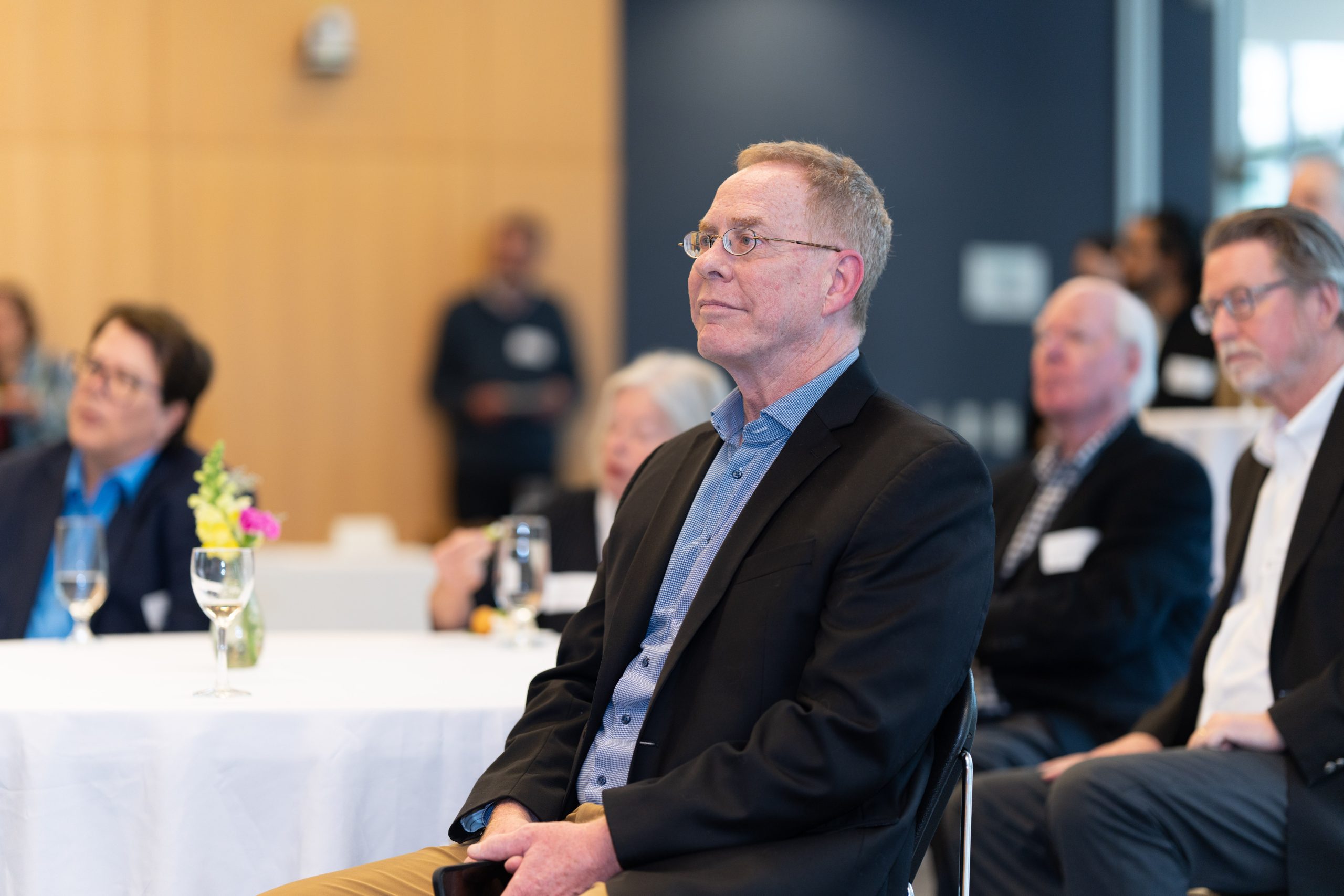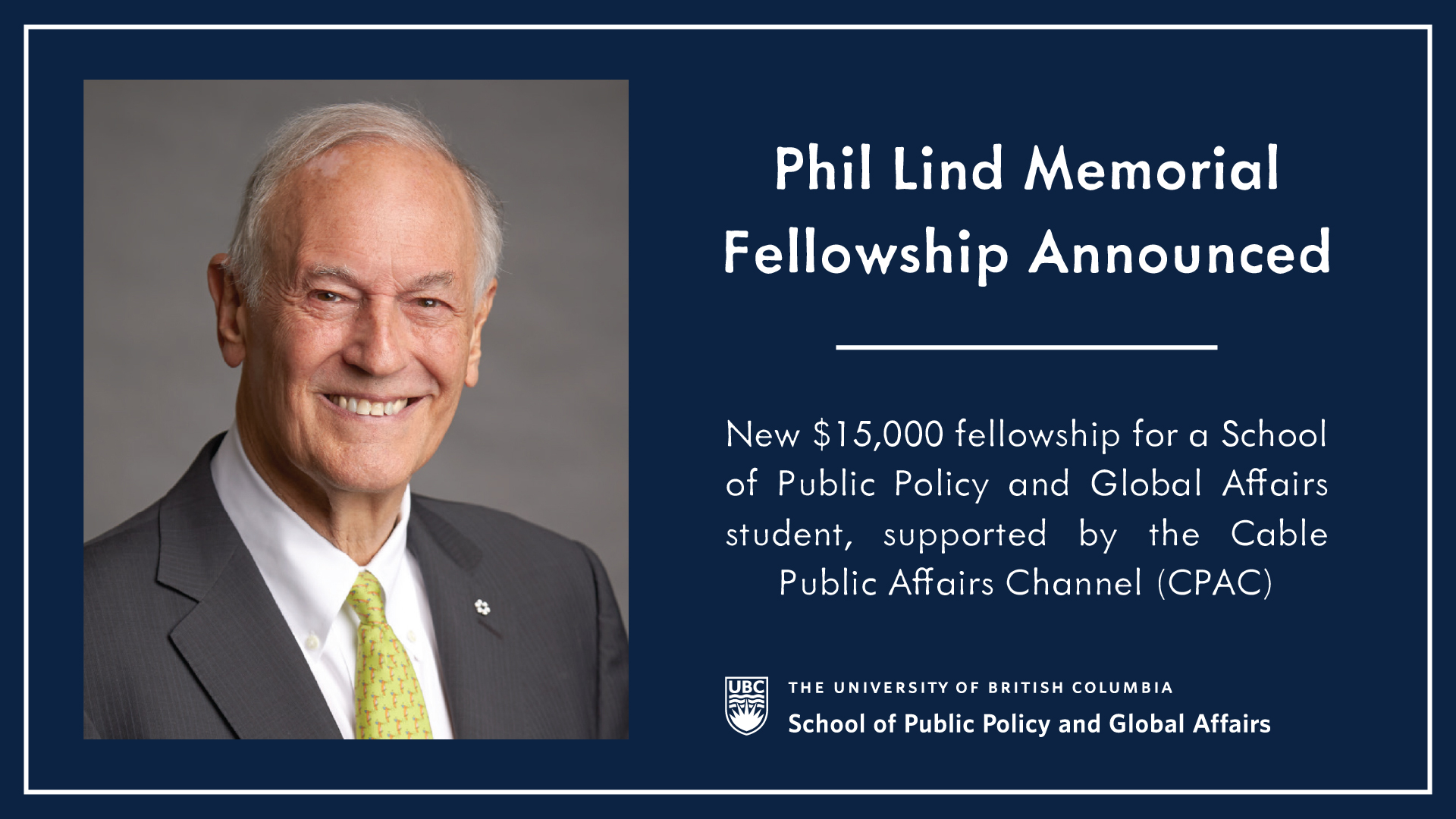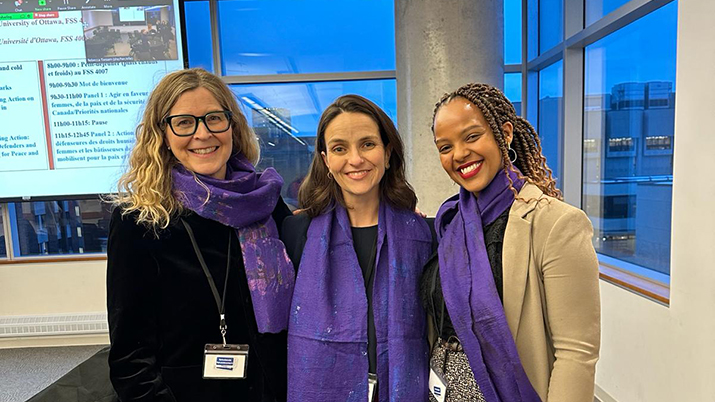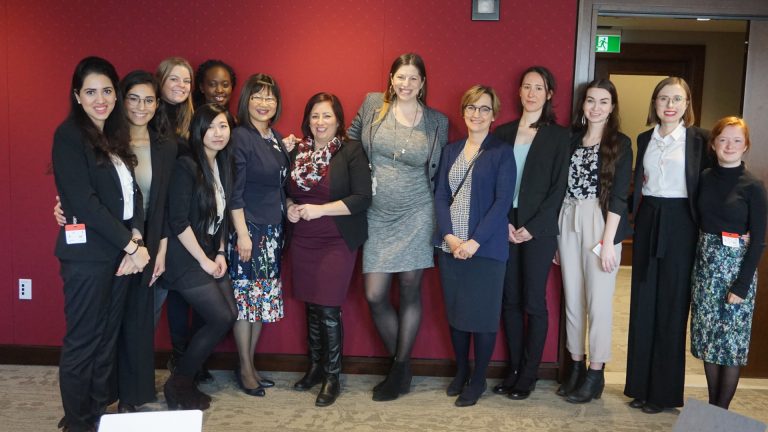

UBC Women in House Program participants and politicians in Ottawa, Canada
Ten University of British Columbia students recently participated in the UBC Women in House (WiH) Program, an innovative program hosted by the UBC School of Public Policy and Global Affairs aimed at promoting a greater level of female representation in the Canadian government. Previously established at other Canadian universities, this year was the inaugural WiH Program at UBC.
The program was held on March 20-21, 2019 in Ottawa. It paired female and female-identified students for a full day with a female Member of Parliament or Senator so students could directly observe political procedures, learn about gender equity, and engage in mentorship and networking with Canadian political leaders.
UBC students were also involved in a second day of learning where they toured the Supreme Court of Canada, the Senate Chamber, and the House of Commons, where they attended Question Period. They also enjoyed a lunch meeting with additional government figures and a reception held on their behalf, which was attended by BC parliamentarians and UBC alumni working in Ottawa.
To learn more, download the full reflections from the UBC students who participated here.
Deanne LeBlanc, Women in House Program Participant:
“It is one thing to study Canadian politics as an academic, and another thing entirely to actually witness it up close. We might have only been on the Hill for two days but those days were packed with meetings and tours. While there were the constant reminders of gender-based obstacles, through our meetings with female staffers, Senators and MPs I was also inspired by the strong, frank and motivated women that I met. In their willingness to share their personal stories and experiences about how they ended up working on the Hill and what that work has been like, I found myself woven into that unique comradery that exists when women share and collaborate within a workplace – a comradery that has the potential to connect and unify women even across party-lines.
By the end of our two days on the Hill, while I think I was exhausted, I found myself energized by these women and the pace and breadth of politics in Ottawa. As someone coming to the end of her degree, I was increasingly drawn to picture myself working there one day.”
Kelley Humber, Women in House Program Participant:
“My experience with the UBC WiH Program taught me a great deal about the community of women who work on Parliament Hill, and gave me a better perspective about the nature of and challenges with Canadian federal politics. Many of the Members of Parliament and Parliamentary aids were evidently very passionate about their careers and about the work they do. For me, being able to talk and discuss professional and personal challenges was an incredibly meaningful experience because it exposed many of the personal successes of the women we spoke with, how they personally felt empowered through their positions, and what sorts of doubts and fears they themselves had to grapple with as they grew into their roles, and took on new roles in politics.
Overall, this program was incredibly eye-opening, provided opportunities to meaningful connect with inspiring Canadians who work on Parliament Hill, and to self-reflect on my own personal strengths, weaknesses, ambitions, and pre-conceived assumptions about the life of public politicians.”
Camile Oliveira, Women in House Program Participant:
“Participating in the WiH Program definitely pushed me out of my comfort zone. Coming from Brazil, I had become very disheartened with politics, and had never thought of becoming an elected politician. However, after learning from politicians about the challenges and gratifications of the job, I decided to not completely cross out the possibility of doing work related to politics and be open to it if the opportunity presents itself.
One of the most surprising parts of the experience was learning the professional path that these politicians took to be where they are today. Most of them had not imagined to be a politician early in their career – Senator Martin, for instance, was a teacher for 20 years before deciding to run. Perhaps one of the biggest takeaways for me was learning that despite which party, all the women we met were incredibly passionate about the work that they did, which is why they got into politics in the first place. Many of the women claimed that they learned a lot about politics while on the job, showing that one does not have to know every detail or have expertise in all the skills before becoming an MP, as it does develop the longer one participates in politics.”
Clara Leroy, Women in House Program Participant:
Despite the glass ceiling, the double shift, and the many other burdens women have to face, Senator Martin advocates for humility and gratefulness. Those are the two words that best describe UBC’s Women in House program and the days we spent in Ottawa. What an honor to learn about the Canadian political system from those actually working inside of it and to share this experience with such an incredible group of peers! Not only was it an incredibly enriching experience academically speaking, this program was also a human journey, greatly shaped by the other participants. For me, it appeared crucial to realize that from the start, this program was a shared experience.
Overall, the WiH Program was not just forty-eight intense hours spent in Ottawa balancing visits and meetings. It was about meeting local leaders ahead of the trip, about getting to know the participants before the journey, about walking the “halls of power” as Senator Martin calls them in Ottawa, about meeting alumni, witnessing a Supreme Court Trial, talking with ambassadors, sharing our shadowing experience with one another, but most importantly, learning from each other. Politics and policies depend on its participants, and so did the WiH Program.”
Anam Imtiaz Elahi, Women in House Program Participant:
“As a policy student and an aspiring global changemaker, Ottawa has always been my dream city to work at; the hub of all politics and decision making. The UBC WiH Program gave me a personalized, up-close tour into the lives of the policy makers, the movers and shakers of the country. It was an opportunity which helped me understand what immense strength women in the parliament and its offices really had, and what all went into becoming a part of that circle. We learned to embody our own capabilities through learning about the struggles of the women who appeared the strongest and most powerful on the media and in the limelight.
As a Canadian-Pakistani living my life split between the two countries, I grew up with a blurred identity; with a feeling that I was never good enough to fit into any of the two countries, always too foreign for each. The program aided me to connect with Senator Yonah Martin, a Canadian-Korean, who helped me understand the power that I held within through multiple national identities. She taught me the skill of embracing the diversity and to channel the loyalty positively for my benefit. My conversations with Senator Yonah Martin were not only enlightening but life changing for me. The exalting experience made me realize that a position at the Hill be it in the form of a policy maker or through the various roles within the parliamentary staff, would be worth the challenge, an attainable target than a distant dream.”
Nicole So, Women in House Program Participant:
“I was honoured and privileged to be selected as one of the delegates representing UBC to the House of Senate in Ottawa through the inaugural UBC WiH Program. Spearheaded by Senator Yonah Martin, this opportunity enabled me to better understand and engage in meaningful discussions on a variety of issues, ranging from the challenges of federal politics in a country as large as Canada to the participation of women in the public sector, in a deeply humanizing way.
The opportunity to participate in a women-focused program and engage with female Canadian political leaders was truly an eye-opening experience for both my personal and professional growth. I had the opportunity to shadow my mentor, Senator Mobina Jaffer, to witness firsthand and better understand the work she is championing, such as around the Bill C-48 as well as on the Official Languages Act. I had the opportunity to join her in several meetings, including one with indigenous stakeholders meeting to understand the diversity of perspectives, values and considerations that a federal Act or policy would have on different communities.
After my graduation from the UBC Master of Public Policy and Global Affairs program, I will be starting a career in the public sector in the Policy Analyst Recruitment and Development Program with Natural Resources Canada, with the (not so) silly hopes to become a strong female leader that others could respect and look up to and “be the change [I] want to see”.”
Jory Smallenberg, Women in House Program Participant:
“During my 2019 visit to Ottawa with the UBC WiH Program, Senator Yonah Martin was clear about the challenges in this area for women in politics. Deputy Chief of Staff and Principal Secretary to the Leader of the Official Opposition, Kenzie Porter, shared her experience of being in labour while making phone calls to the party. Senator Martin, too, shared her reluctance to enter politics while her pre-adolescent daughter was at home. In fact, this dilemma is not unique to women: men also struggle with work-life balance on the Hill, and efforts are being made to make Parliament more family-friendly as a result.
At the end of the day, I learned through my encounter with Yonah that life is more about calling than about commitments: if you are called, you are then empowered to make hard choices that allow you to fulfill both roles full-heartedly. While I was in Ottawa, Yonah’s husband was there also, visiting her as she prepared to stay in the Senate until midnight for a voting marathon. Quickly, we snapped a photo together, and Yonah scurried down the corridor, shoes in hand, to prepare for her next engagement. In many ways, I see my lifestyle in her actions: instead, my full-time job is currently called a graduate degree in political science, preparing me for public service in Canada.”
Michelle Owusu-Ansah, Women in House Program Participant:
“I am Canadian, but I always felt that I was not Canadian enough, not only because I do not play hockey or eat enough Canadian syrup, but also because of my accent, colour and my African ancestry. However, during my time in Ottawa, I saw women like me – women who ethnically identify with other cultures but are also proudly Canadians and wholeheartedly serve our country. One of those women that stood out for me was Senator Martin. She taught me that it is our cultural diversity that makes us a nation and regardless of who I am and what I identify with, I can also contribute to this nation. Through the UBC WiH Program, I have learned that I can also contribute to our nation’s growth through public service and sacrifice, regardless of my gender, colour or ancestry.
I have learned that being part of the ‘Ottawa Bubble’ in the future requires that I look within my heart and address thoughts about myself and others. What our nation needs to overcome its legacy of colonialization and racism, is not hypocrisy, but truth, love and strong values from within us. Thanks to the WiH Program, I am more knowledgeable about the sacrifices and challenges I will have to face in the future as a woman in the ‘Ottawa Bubble.’ With such great knowledge, I believe that I can also wholeheartedly serve this beautiful country of ours and make a difference!”
Jade Dumoulin, Women in House Program Participant:
“I’m a fifth year UBC Political Science undergraduate student and in the fall, I will be attending the Allard School of Law. As a student from Xaxli’p First Nation, I decided to participate in the UBC WiH Program because Indigenous peoples continue to be underrepresented in and marginalized from politics. This marginalization is particularly true for Indigenous women. Throughout the first full day in Ottawa, we received tours of the Supreme Court, the East Block of Parliament, and the Senate. I was struck by the absence of Indigenous peoples from these institutions since the tours made no direct references to Indigenous peoples. However, I was happy to find out that I was shadowing Senator LaBoucane-Benson on the second day, an Independent and Métis Senator from Alberta. She has spent much of her career with the Native Counselling Services of Alberta and has a PhD in Human Ecology, with a focus on Indigenous family resilience.
My experiences in Ottawa made me realize just how difficult it is to be Indigenous in government and that it is especially difficult to be an Indigenous woman in government. I am thankful for strong Indigenous women in government like Senator LaBoucane-Benson and MP Wilson-Raybould who give Indigenous youth someone to look up to.
Many of the women we spoke to also discussed at length how hard it is to balance work and family in this type of job, especially as a woman. However, the idea of working on the Hill in a non-elected position had never occurred to me before. It actually seemed rather appealing because there is always so much going on and so much energy on the Hill. At some point in my career, I could see myself working in some non-elected capacity at Parliament.”
Alex Lloyd, Women in House Program Participant:
“I shadowed a Senator for a day and talked with female parliamentarians about what it is like to be a woman in politics. Though I am currently completely my Master’s in Political Science at UBC, I rarely get to experience the political workings of my government firsthand, so I was grateful the opportunities the program provided me with. The few days I spent in Ottawa really challenged many of my preconceived notions of what political life is like for women in federal Canadian politics and has made me rethink how I approach the study of politics.
One thing that surprised me was that all the women we talked with stated that they felt that their gender was not a major factor in their day to day interactions with their fellow parliamentarians (from their own caucus or otherwise). It was illuminating to see how these women viewed their gender as something empowering, rather than limiting. To be sure, the female parliamentarians we talked with discussed micro aggressions that can take place on the Hill, but overall it seems that we have made significant process in terms of dismantling the hegemonic male culture of the legislature.
Perhaps the most important thing I learned from this experience was that regardless of ideological difference, all parliamentarians, staffers, and public servants want to enact what they genuinely think is the best public policy for Canadians. As someone studying political science, I think my perspective of politics can sometimes be quite limiting. I’ve been trained to think of politicians as political actors, as individuals with some measure of political power and the ability to influence decisions, rather than people just trying to do the best they can within our political system. In that sense, I felt that the program really humanized how I see parliamentarians, and for that I am grateful.”
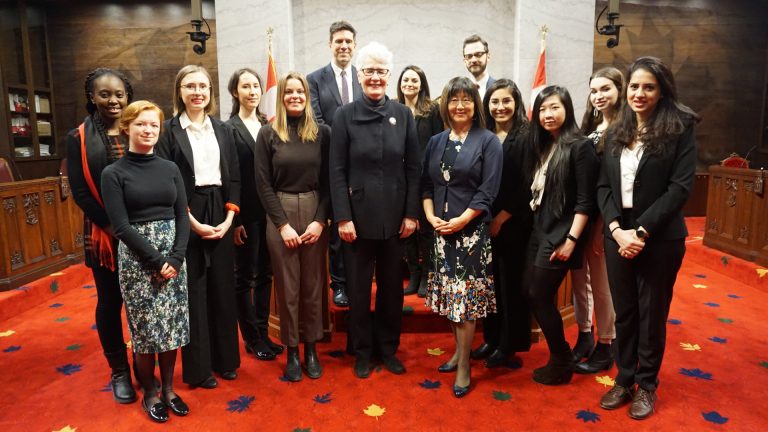

UBC Women in House Program students, staff, and faculty in Ottawa.
